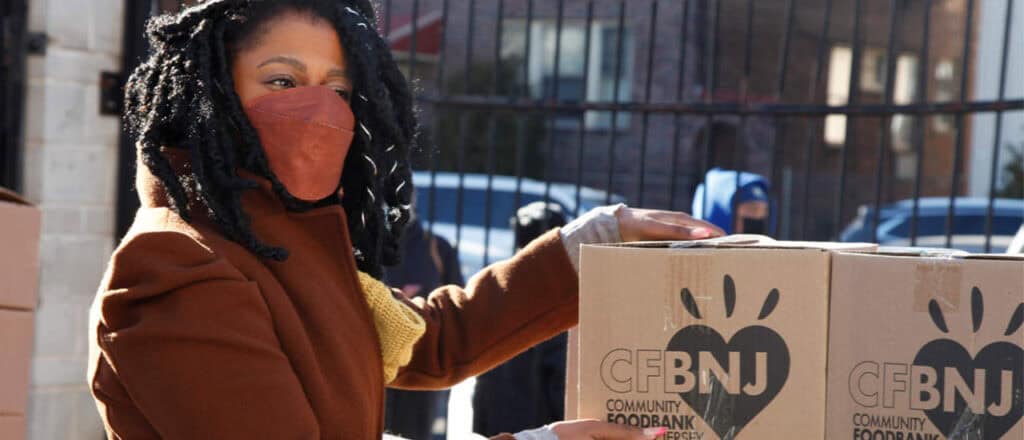March is both National Nutrition Month and Women’s History Month! At the Community FoodBank of New Jersey, we not only fight to end hunger and poverty across New Jersey but also prioritize addressing hunger as a health issue, providing and advocating for healthier options for our neighbors in need.
Read on to hear from our Child Nutrition Programs Coordinator, Tamara Casseus, who shared how CFBNJ makes this possible, as well as what National Nutrition Month and Women’s History Month mean to her.
How did you get started at CFBNJ? What drew you to work on our Child Nutrition Programs? In 2011, I had just completed volunteer work with a medical mission in Haiti. Many of the skills I used during the medical mission mirrored the requirements for a position working with Mobile Pantries, which is where I started with CFBNJ. Transitioning into Child Nutrition was seamless because I had experience with Summer Feeding during my time with the Mobile Pantries. I was drawn to the program because my educational background is in Social Work, and I wanted to provide to my surrounding community the support that was provided to me as a child.
Why is it important for kids to get proper nutrition? How does CFBNJ help make that happen? It’s important for kids to get proper nutrition because it affects the overall health of a child, including brain development, mental health, and physical growth. CFBNJ helps to make that happen through the nutrition provided in menus created by the child feeding programs, support services through Resource Access, and educational programs, such as nutrition education and FSTA.
What role do Family Packs play in ensuring that kids are nourished and ready to live up to their full potential? Many children rely on school breakfasts and lunches as a primary source to obtain steady meals. Family Packs play a pivotal role in providing weekend meals to children who do not have access to school breakfasts and lunches.
How are the Family Pack menus determined? The Family Pack menus are determined through the Director of Programs. The current director is Lindsey Kennedy. She assesses survey results that I provide from the students and coordinators for the program when considering the type of menus to create.
March is National Nutrition Month AND Women’s History Month. As a woman whose livelihood focuses on providing nourishment to kids, what does this month mean to you? As a black woman whose community and youth face a disproportionately higher amount of health risks and restricted access to resources, Women’s History Month and National Nutrition Month allows me to reflect on how nutrition plays a strong role in promoting health and wellness in society. As mothers, sisters, aunts, cousins and workers, women play a large role in the efforts to close the gap that restricts access to food for disadvantaged communities through the FoodBank, pantries, community programs, faith-based communities, and schools. I am honored to do my part in helping to push the objective forward.


